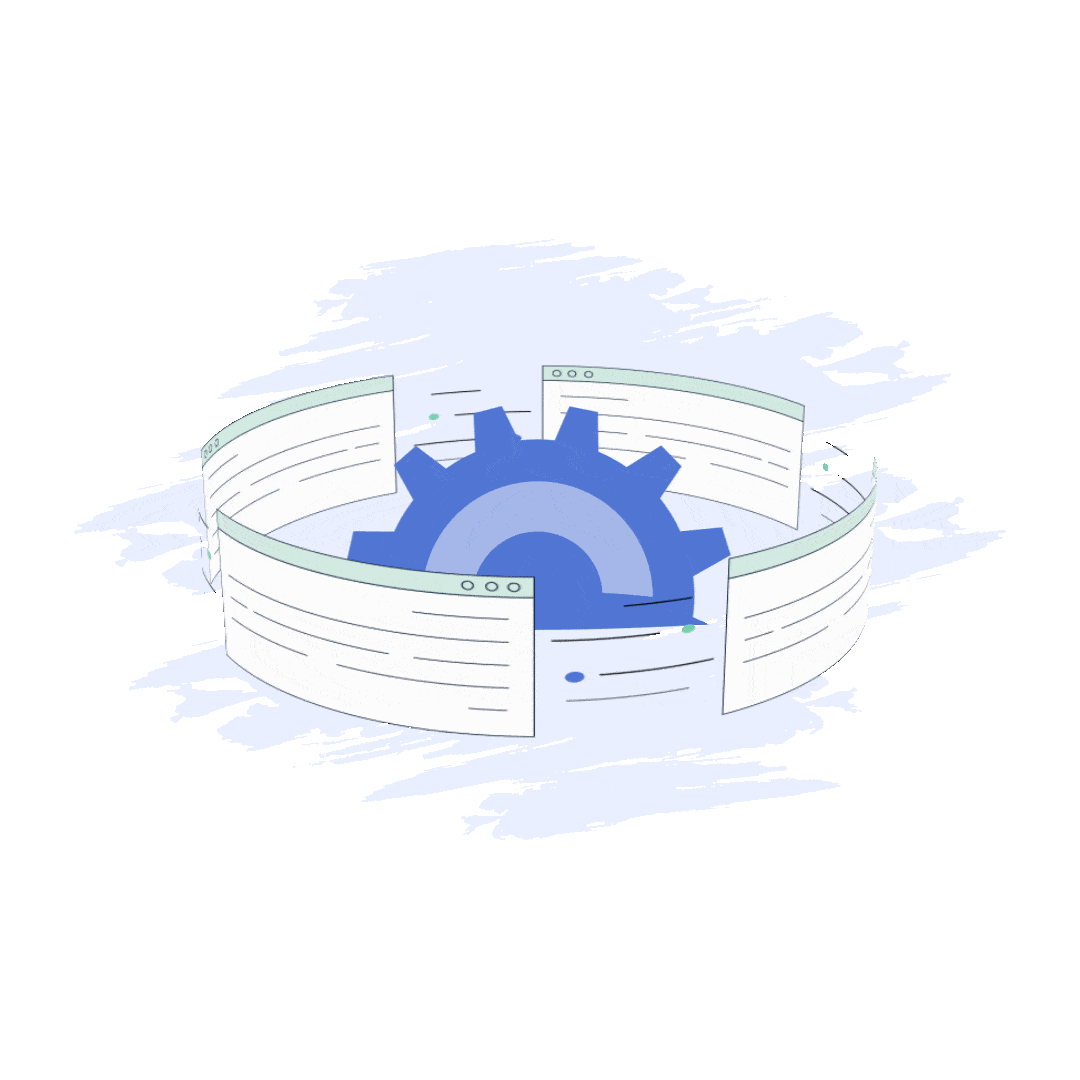Why Zamp?
Combining technology and help from sales tax experts is a game changer.
We do the heavy lifting, so you don’t have to.

Fully Managed Solution
Stressing over sales tax is a thing of the past. All you do is click approve, and we handle the rest. You'll always be up-to-date and sales tax compliant.

Developer Friendly Sales Tax API
Connect your existing e-commerce, marketplace & ERP systems within minutes, and use Zamp’s API for roof-top accurate sales tax calculations.

One Price
One simple price that scales with your business. No overages, no hidden fees, no surprises.
Sales Tax Calculator API
- The Essentials of Sales Tax for Online Retailers
- Key Benefits of Implementing Sales Tax Calculator APIs
- Accuracy and Compliance with Tax Laws
- Saving Time and Reducing Operational Costs
- Choosing the Right Sales Tax Calculator API for Your Business
- Overview of Leading Sales Tax Calculator APIs
- Integration Tips and Best Practices for a Sales Tax Calculator API
- Revolutionizing E-commerce with Sales Tax Calculator APIs
- Sales Tax Calculator API FAQ
Handling sales tax in e-commerce can feel like a constantly moving target, with tax laws that vary significantly across jurisdictions and can change without much warning. This is a key challenge for online businesses, where even minor discrepancies can lead to serious compliance issues and financial penalties. That's exactly where sales tax calculator APIs step in, offering a robust solution for businesses aiming to stay compliant without the constant overhead of manual updates.
These APIs act as an automated compliance manager that integrates directly into your e-commerce platform like Shopify or BigCommerce. They work silently in the background, ensuring that every transaction is assessed against the latest tax rates and rules. This automatic updating is a critical tool for businesses, ensuring that no matter where your customers are, or what changes in legislation might occur, you're always charging the correct amount of sales tax.
Sales tax calculator APIs also simplify the checkout process by automatically applying the correct tax calculations, which not only adheres to legal standards but also maintains pricing transparency for customers. This is particularly important as unexpected costs at checkout can deter purchases, affecting overall sales and customer satisfaction.
Let’s consider a typical scenario: it’s the holiday season, and sales volumes are peaking. You're processing hundreds of transactions an hour. Without an automated system, updating tax rates manually in real-time would be untenable. A sales tax calculator API manages these updates effortlessly, ensuring each transaction is compliant, so you can focus on customer service and order fulfillment.Next we’ll take a look at how these APIs integrate into your systems, the specific compliance challenges they address, and why they are essential for modern e-commerce businesses. We'll also provide practical advice on selecting the right API to meet your business's needs and discuss some industry leaders in this technology. This isn’t just about handling taxes; it’s about enhancing operational efficiency and customer trust through reliable technological solutions.
Book a call today
We'll answer all of your sales tax questions & address any of your concerns to ensure that you never have to worry about sales tax again-
1Book a free 30 minute call
-
2Meet with one of our experts
-
3Get sales tax off your plate
The Essentials of Sales Tax for Online Retailers
At its core, sales tax is a percentage of the sales price that retailers are required to collect from customers at the point of sale and then remit to the appropriate tax authorities. This sounds straightforward, but the application in e-commerce can be anything but simple.
Firstly, the impact of sales tax on e-commerce transactions is substantial. It affects pricing transparency, customer satisfaction, and ultimately, your bottom line. Incorrect tax collection can lead to serious issues, including sales tax audits, fines, and a tarnished reputation. For an online business, where transactions can cross state lines, the complexity increases exponentially.
The main challenge lies in the fact that tax rates and rules vary widely by jurisdiction. In the United States alone, there are over 10,000 tax jurisdictions, each with its own set of rates and rules. Some states charge no sales tax at all, while others have multiple layers of taxation, including state, county, and city taxes. Additionally, what items are taxable can differ from one place to another, while clothing might be tax-exempt in one state, it could be fully taxable in another.
Calculating sales tax correctly requires an understanding of nexus, a legal term for the connection a business has with a taxing jurisdiction. An online retailer must collect and remit sales tax in states where they have nexus, which can be established by physical presence, such as a store or warehouse, or by economic activity, such as reaching a certain level of sales within a state.
For example, if your e-commerce platform sells to a customer in a state where you have nexus, you need to apply the correct tax rate. This might mean integrating multiple tax rates into a single transaction if the customer buys products that are taxed differently. It gets even more complex during special promotions or with the application of discounts, where the taxable amount might change, affecting the final tax calculation.
Given these complexities, it's clear why accurate tax calculation is not just a necessity but a significant challenge for online retailers.
Key Benefits of Implementing Sales Tax Calculator APIs
Adding a sales tax calculator API to your e-commerce setup can really work wonders. Here are some of the key benefits.
Accuracy and Compliance with Tax Laws
The primary benefit of sales tax calculator APIs is their ability to ensure accuracy in the application of sales taxes across diverse jurisdictions. These systems are designed to be up-to-date with the latest tax codes and rates, which are constantly changing and can be highly specific to each locality. By automating tax calculations, these APIs remove the risk of human error and the enormous task of tracking changes in tax legislation manually.
Saving Time and Reducing Operational Costs
Another significant advantage of sales tax calculator APIs is the time and cost savings they offer. Traditionally, businesses might spend hours every week manually calculating tax for each sale or updating their systems to reflect new tax laws. This is not only time-consuming but also prone to errors, which can be costly to rectify.
By automating these processes, sales tax calculator APIs free up your team to focus on other critical aspects of your business, like customer service, marketing, and product development. This shift not only improves productivity but also reduces the operational costs associated with manual tax management. For example, you might avoid hiring additional staff to handle tax compliance, or reduce the hours spent by current staff on these tasks, allowing them to contribute to more value-adding activities.
Sales tax calculator APIs are not just about maintaining compliance; they are about transforming the way e-commerce businesses manage their operations. They ensure that businesses can maintain pace with the fast-evolving tax landscape and customer expectations, all while managing costs and efficiency. In the next sections, we'll look into how to choose the right sales tax calculator API for your business and the best practices for integrating these systems to maximize their benefits.
Choosing the Right Sales Tax Calculator API for Your Business
Selecting the right sales tax calculator API is about finding a tool that not only fits your current needs but also scales with your business as it grows. Here’s how to approach selecting an API that best meets the needs of your e-commerce platform.
Compatibility and Integration Ease: The API should integrate smoothly with your existing e-commerce platform and systems. This means it should not require extensive modifications to your current setup, which can lead to increased costs and implementation time.
Accuracy and Reliability: The API must provide accurate tax calculations based on the latest tax rules and rates. Look for providers who update their systems frequently in response to changes in tax legislation.
Scalability: As your business grows, your API should be able to handle an increasing number of transactions without performance issues. This includes being able to manage high volumes during peak shopping seasons without faltering.
Customer Support and Service: Good customer support can make a significant difference, especially when you encounter issues or need help with integration. Providers who offer robust, responsive support and service agreements are preferable.
Cost-Effectiveness: Consider the pricing model of the API to ensure it fits your budget and transaction volume without compromising on features. Some APIs charge per transaction, while others may offer a flat monthly rate depending on usage levels.
Security Features: Given the sensitivity of tax data, the API must comply with high standards of security to protect your business and customer information from breaches.
Overview of Leading Sales Tax Calculator APIs
Choosing the right Sales Tax Calculator API involves a careful evaluation of your business needs against what each API offers. By focusing on these criteria and reviewing leading options, you can select an API that not only simplifies tax compliance but also enhances your operational efficiency.
Here are our in-depth comparisons:
Next we’ll provide guidance on how to integrate these APIs into your systems effectively and discuss best practices for ensuring that they deliver the maximum benefit to your business.
Integration Tips and Best Practices for a Sales Tax Calculator API
Integrating a sales tax calculator API with your e-commerce system is all about making sales tax calculations smooth and reliable in the background without letting the customer even notice what’s happening under the hood.
Start with Testing: Before you even think about letting this API loose on your real customers, you want to test it out. Set up a sandbox environment where you can simulate transactions. Check if it’s pulling the correct tax rates for various scenarios like different states or special tax rules. It's like a dress rehearsal for your website to catch any glitches before the actual show.
Keep It Updated: Tax laws change more often than fashion trends, so make sure your API provider keeps up. A good provider should update their systems with the latest tax rates without you having to lift a finger. It's a bit like having a smart fridge that knows when you’re out of orange juice and orders it for you.
Monitor Performance: Once everything’s live, don’t just kick back and relax. Keep an eye on how the API is performing. Is it slowing down your site’s checkout process? Are there any errors popping up? Think of it as having a dashboard in your car - you need it to tell you if you should check the engine before you’re stranded on the side of the road.
Handling Errors Gracefully: Sometimes things go wrong, and that’s okay, as long as you're prepared. Make sure that if the tax API fails, your site can still handle transactions gracefully. Set up a fallback mechanism; maybe default to a standard tax rate, or use a cached rate temporarily. It’s about having a good backup plan, like keeping an umbrella in your bag just in case it rains.
User Experience is Key: Finally, keep the user in mind. The API should work so smoothly that taxes are calculated and added without the customer having to wait or be redirected. It should feel like magic where they add an item to the cart, and the correct tax just appears, with no fuss.
Revolutionizing E-commerce with Sales Tax Calculator APIs
Sales tax software for ecommerce is a game changer for any online business. It doesn’t just keep you compliant with the law (which is a big deal by itself), but it also saves you from potential headaches with tax authorities and unhappy customers who were charged the wrong tax.
If you're thinking about giving your e-commerce platform that edge, consider going for a managed sales tax solution like Zamp. With Zamp, it’s not just about having cutting-edge software. You get a whole team of sales tax experts who manage everything for you. They stay on top of all the changes in tax laws so you can focus more on growing your business and less on whether you’re charging the right tax in Vermont versus Virginia.
Check out our unique approach to see how we take things a step further.
Book a call today
We'll answer all of your sales tax questions & address any of your concerns to ensure that you never have to worry about sales tax again-
1Book a free 30 minute call
-
2Meet with one of our experts
-
3Get sales tax off your plate
Sales Tax Calculator API FAQ
A sales tax calculator API is a tool that automatically calculates the sales tax due on each transaction made through an e-commerce platform. It integrates with your online store and uses current tax rates and rules to determine the exact tax amount in real-time based on the customer’s location and the items purchased.
Integrating a sales tax calculator API helps ensure that you're charging the correct amount of sales tax on each order. This not only keeps you compliant with varying tax laws but also enhances customer trust by providing transparent pricing. Plus, it saves you a ton of time by automating a complex process.
Absolutely! A sales tax calculator API speeds up the checkout process by instantly calculating the necessary taxes. This transparency and efficiency can significantly enhance the overall customer experience, reducing cart abandonment and boosting satisfaction.
A good sales tax calculator API will automatically update to reflect changes in tax rates and rules. This means you don’t have to manually track and update your system whenever tax legislation changes, giving you peace of mind and more time to focus on other aspects of your business.
Setting up a sales tax calculator API is generally straightforward. Most providers offer comprehensive guides and customer support to help you integrate their API into your system. Depending on your platform, it might be as simple as installing a plugin and configuring a few settings.
- The Essentials of Sales Tax for Online Retailers
- Key Benefits of Implementing Sales Tax Calculator APIs
- Accuracy and Compliance with Tax Laws
- Saving Time and Reducing Operational Costs
- Choosing the Right Sales Tax Calculator API for Your Business
- Overview of Leading Sales Tax Calculator APIs
- Integration Tips and Best Practices for a Sales Tax Calculator API
- Revolutionizing E-commerce with Sales Tax Calculator APIs
- Sales Tax Calculator API FAQ
Book a call today
We'll answer all of your sales tax questions & address any of your concerns to ensure that you never have to worry about sales tax again-
1Book a free 30 minute call
-
2Meet with one of our experts
-
3Get sales tax off your plate


